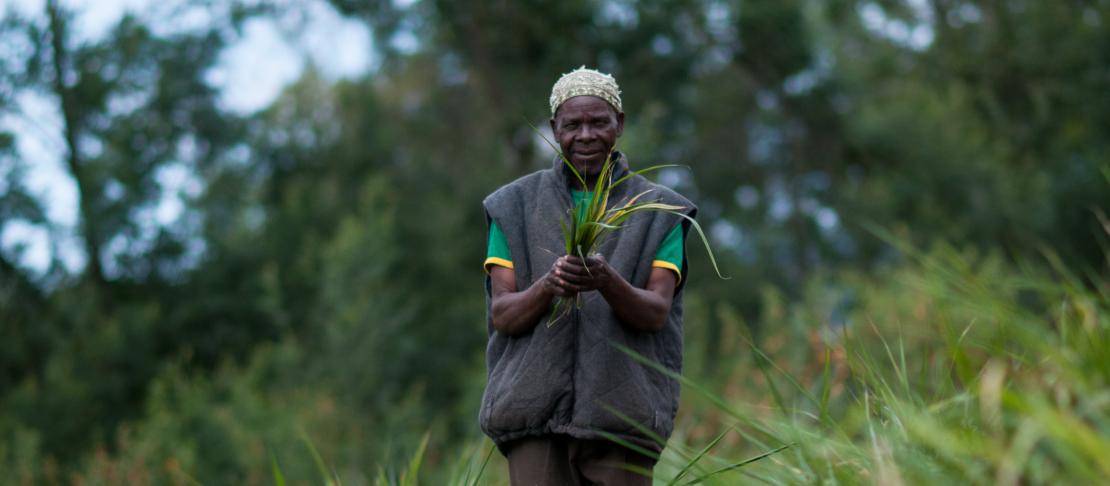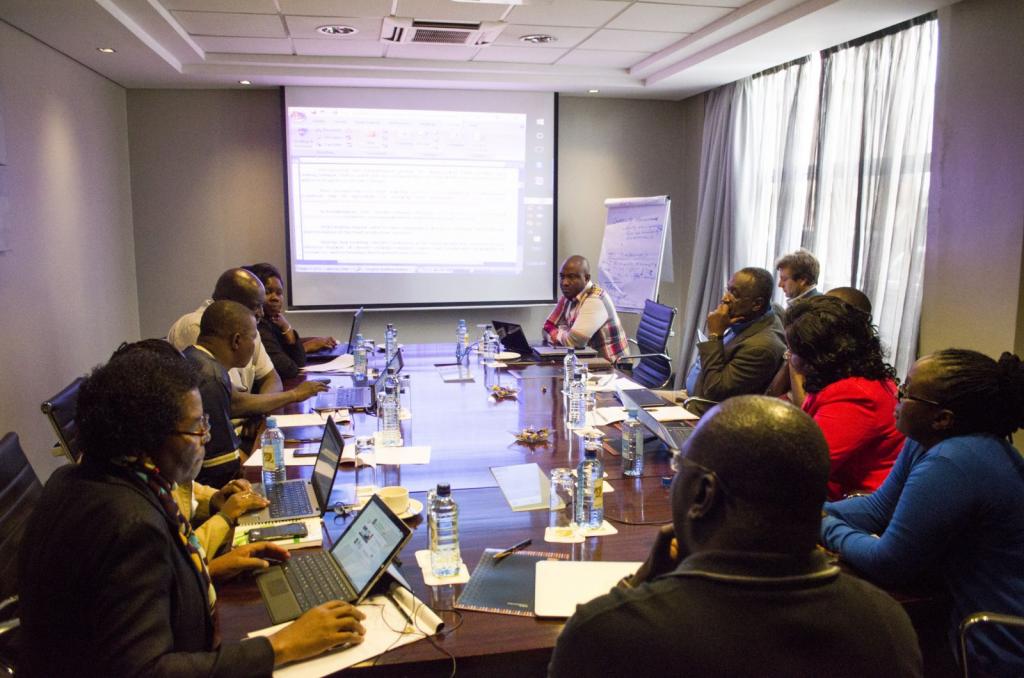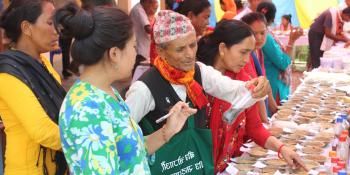More action, less talk: African negotiators call for investments in agricultural transformation

It is important to identify how to effectively transform agriculture in Africa in a changing climate.
At the global level, parties to the UNFCCC have been involved in discussions on issues related to agriculture and the conclusions of these discussions will be done at the 45th session of the Subsidiary Body for Scientific and Technological Advice (SBSTA) to be held during the 22nd session of the Conference of the Parties (COP 22) in Marrackech, Morocco. Issues of agriculture within SBSTA were initiated in 2014 when parties participating in SBSTA 40 asked the UNFCCC secretariat to organise four in-session workshops on agriculture focused on:
- Development of early warning systems and contingency plans in relation to extreme weather events and its effects.
- Assessment of risk and vulnerability of agricultural systems to different climate change scenarios at regional, national and local levels.
- Identification of adaptation measures, taking into account the diversity of the agricultural systems, indigenous knowledge systems and the differences in scale.
- Identification and assessment of agricultural practices and technologies to enhance productivity in a sustainable manner, food security and resilience.
All these workshops have been undertaken and negotiations on agriculture have reached a critical stage. On 12 December 2015, 195 Parties to the UNFCCC adopted the landmark Paris Agreement which seeks to limit greenhouse gas emissions and to set the world on a more sustainable development pathway. The agreement recognizes ‘the fundamental priority of safeguarding food security and ending hunger, and the particular vulnerabilities of food production systems to the adverse effects of climate change’. Indeed, the Sustainable Development Goals (SDGs) also stress the importance of food security. Agriculture, therefore offers great opportunity of linking hunger eradication and sustainable development with climate action.
Read more: The Paris Climate Agreement: what it means for food and farming
What does this mean for Africa’s agriculture?
In Africa, climate change has immense and widespread effects on agriculture, including frequent extreme weather events (e.g. floods, drought), increased incidence of pests and diseases. The negative impact on crops, livestock and fisheries will have devastating effects on farmers’ livelihoods. Adapting Africa’s agriculture to climate change is therefore critical. African countries are already focusing on enhancing their medium and long-term adaption actions through formulation and implementation of National Adaptation Plans (NAPs) and National Adaptation Plans of Actions (NAPAs) with more focus on agricultural production, farming systems and ensuring food security. Besides, agriculture features prominently in the majority of Intended Nationally Determined Contributions (INDCs) submitted by African countries, with 36 out of 54 African countries also including agriculture in their greenhouse gas (GHG) mitigation targets.
Read more about the inclusion of agriculture in the INDCs: Agriculture's prominence in the INDCs: data and maps
Even as Africa mobilizes domestic capacity, resources and expertise to meet its obligations under the Paris Agreement, it will still require support from developed countries, development partners and multilateral funds. African farmers lack access to appropriate technology and finance needed to transform their agriculture to meet its food security while reducing agricultural emissions. At national level, climate-smart policy action and strategies in agriculture sector are also lacking.
The AGN recognizes that climate change and its adverse impacts in Africa have to be addressed through cooperation at all levels. During the upcoming COP22 in Marrakech, Morocco, the African Group of Negotiators (AGN) is desirous of a substantive draft decision from SBSTA for consideration by the COP on how to advance discussions on agriculture. In September, the AGN agriculture negotiators in partnership with African Group of Negotiators Expert Support (AGNES) convened a pre-COP meeting in Nairobi to discuss the possible elements of a draft decision on agriculture taking into consideration the provisions of the Paris Agreement. The meeting was facilitated by the CGIAR Research Program on Climate Change, Agriculture and Food Security (CCAFS) East Africa Program and the International Development Research Centre (IDRC). CCAFS has been working with the AGN since 2011 and this session was critical to inform the next phase of engagement following the UNFCCC in session workshops. Moving forward, African agriculture negotiators are of the general view that COP22 in Marrakech should adopt a substantive decision that will enhance the implementation of the Paris agreement and the outcomes of the four agriculture workshops.

At the pre-COP meeting in Nairobi, participants discussed the possible elements of a draft decision on agriculture taking into consideration the provisions of the Paris Agreement. Photo: D. Onyango
Critical issues identified by the AGN for discussion at COP22 included:
- Tools and methods for early warning systems, risk and vulnerability assessments in agricultural systems, taking into account local and indigenous knowledge (in partnership with Intergovernmental Panel on Climate Change and other relevant bodies).
- Development of a framework for measuring adaptation and resilience in agricultural systems, including guidelines, methods, tools and indicators.
- Development and transfer of technologies that enhance resilience of agricultural systems: breeding, water and land management technologies, post harvesting and agro-processing, integrated pest and disease management, and climate information services.
- Capacity building, including institutional capacity, of African countries on early warning and contingency planning, risk and vulnerability assessment, climate risk finance and insurance and climate information services and application for agriculture.
- Mobilizing resources to support establishment of interactive web-based platform that can be used to share good agricultural practices (within regions and across regions) that can build resilience, ensure food security and reduce emissions.
Read more:
- CCAFS report: Options for agriculture at Marrakech climate talks: messages for SBSTA 45 agriculture negotiators
- UNFCCC: Issues related to agriculture. Draft conclusions proposed by the Chair.
Catherine Mungai is the Partnerships and Policy Specialist at CCAFS EA. Mary Nyasimi is the Gender and Social Inclusion Flagship Science Officer. Fred Kossam is the African Group of Negotiators - Lead Agriculture Negotiator, Ministry of Natural Resources, Energy and Mining, Malawi.


